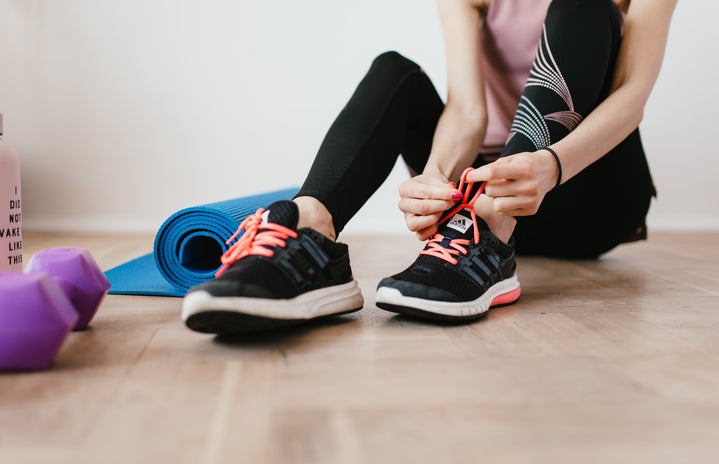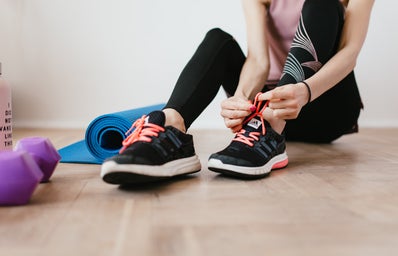TW: diet.
As the new year starts, we once again find ourselves inundated with varying forms of ‘health and well-being’ resolutions and tips. I have to say, I’m never one to go for the ‘New Year, New Me’ attitude. It’s too stressful, and I feel like I would be setting myself up for failure. In fact, the day has already passed when most people give up on their resolutions – the second Friday in January. Nonetheless, this hasn’t stopped the influx of programmes, regimes, and gym-wear flooding the media in an attempt to keep us motivated.
Yet, as with anything, there seem to be mixed messages when it comes to fitness and how to do it, how to keep up with it and, crucially, why it should be done at all.
This entire conflict can be summed up well by an experience I had back in January of last year when reading a magazine targeted at middle-aged women. I was pleased to see a fitness influencer promoting exercise as a means of becoming stronger and happier, rather than a quick fix to look a certain way. She acknowledged that people might have personal goals for how they might like to look, but in terms of a reason for working out, she focused on finding a goal unrelated to physical appearance (such as gaining more stamina), as she explained that this is more sustainable. The article included a 30-minute sample workout – nothing too intense, but enough to work up a sweat. When reading, I was happy to see what looked like a balanced approach to exercise.
Then, just a few pages later, I found an article with a very different approach. This article advertised a Keto diet, which promoted less than half the daily caloric information the NHS suggests.
Herein lies the problem. Health and well-being are so important, both for our physical and mental functions, but when we are receiving such conflicting messages about how to stay healthy, how can we reconcile them?
And magazines are not the only culprits. Social media, too, offers a huge range of fitness and food ideas, many of which are not in line with a healthy lifestyle.
Much of the social media content around exercise is focused on the idea of consistency, and of working out for mental health rather than a desire to look a certain way. However, a significant portion is also taken up with ‘2-week ab’ programmes and ‘healthy alternative’ foods which contain questionable ingredients. The contradictions can be confusing. Sometimes you’ll even find the same account promoting what are, in my view, contradicting messages, with mantras like ‘be kind to yourself’ alongside implications that ‘there’s no excuse not to work out.’
For me, the question of why we should exercise seems obvious – the mental benefits are clear. Whether it’s going for a walk or doing a HIIT workout, exercise can really lift the spirits. Moreover, physically speaking, exercise helps improve everything from the strength of your bones to maintaining a healthy blood pressure.
The question is: how do we do it? Physical goals vary from person to person. Where one person might just want to move their body, another might want to gain more energy, and another might want to build some abs. All of this is fine – it’s OK to have goals.
But how can people be expected to work towards their goals when they are receiving such mixed messages? Long-term consistency is all very well until the temptation of a ’30 days to toned legs’ advert pops up.
I’ve had to teach myself to ignore the algorithm and to ignore posts that crop up that don’t fit with what I believe. It’s hard, but also necessary to prevent yourself from getting trapped in a cycle of contradicting messages.
Personally, my social media recommendation is @lucymountain. She promotes exercise as a way to feel good rather than to look a certain way. In terms of groups in St Andrews, I enjoy EmpowHer, a society focused on fitness and aimed at people who feel comfortable in a feminine space, where exercise is done in a fun and social way.


